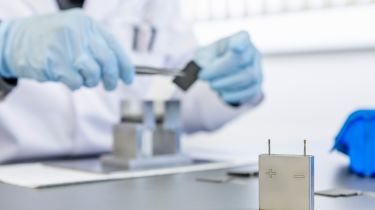New battery will give electric cars over 600 miles of range
High-density battery technology could eliminate range anxiety, reduce costs and decrease the risk of cars catching fire

A new first-of-its-kind rechargeable battery will give electric cars a range of more than 600 miles on a single charge.
Innolith AG – a company that specialises in inorganic battery technology – is developing what it claims will be the world’s first 1,000Wh/kg (watt-hour per kilogram) rechargeable battery, allowing electric cars to travel for up to 1,000km (621 miles) before having to recharge.
Not only does the high density battery have the potential to all but eliminate range anxiety, but it will also reduce the costs associated with battery production due to the fact it doesn’t require the use of what Innolith calls “exotic and expensive materials”.
Another advantage is that, while traditional electric car batteries use a flammable organic electrolyte, the Innolith Energy Battery will utilise a non-flammable inorganic electrolyte, therefore reducing the risk of the vehicle catching fire.
The battery is currently being developed at Innolith’s laboratory in Germany, with the development and commercialisation process expected to take between three and five years.
Innolith will initially launch the battery to market via a pilot production scheme in Germany, after which licensing arrangements will be made with vehicle manufacturers and other battery companies.
• Solar-powered electric forecourts will charge EVs in 10 minutes
Innolith says the charging time required for a car fitted with its new batteries to reach a range of 250 miles for example will be no different from that of an electric car with a conventional battery, but the firm anticipates a full recharge will require the vehicle to be left plugged in overnight.
The firm says it has patents pending for the key points of the technology and is maintaining commercial confidentiality on the details of the cell chemistry mechanism, intending to retain control of specialty chemical supplies under any future licensing arrangements.
What do you make of this new battery technology? Let us know in the comments below...
Find a car with the experts


